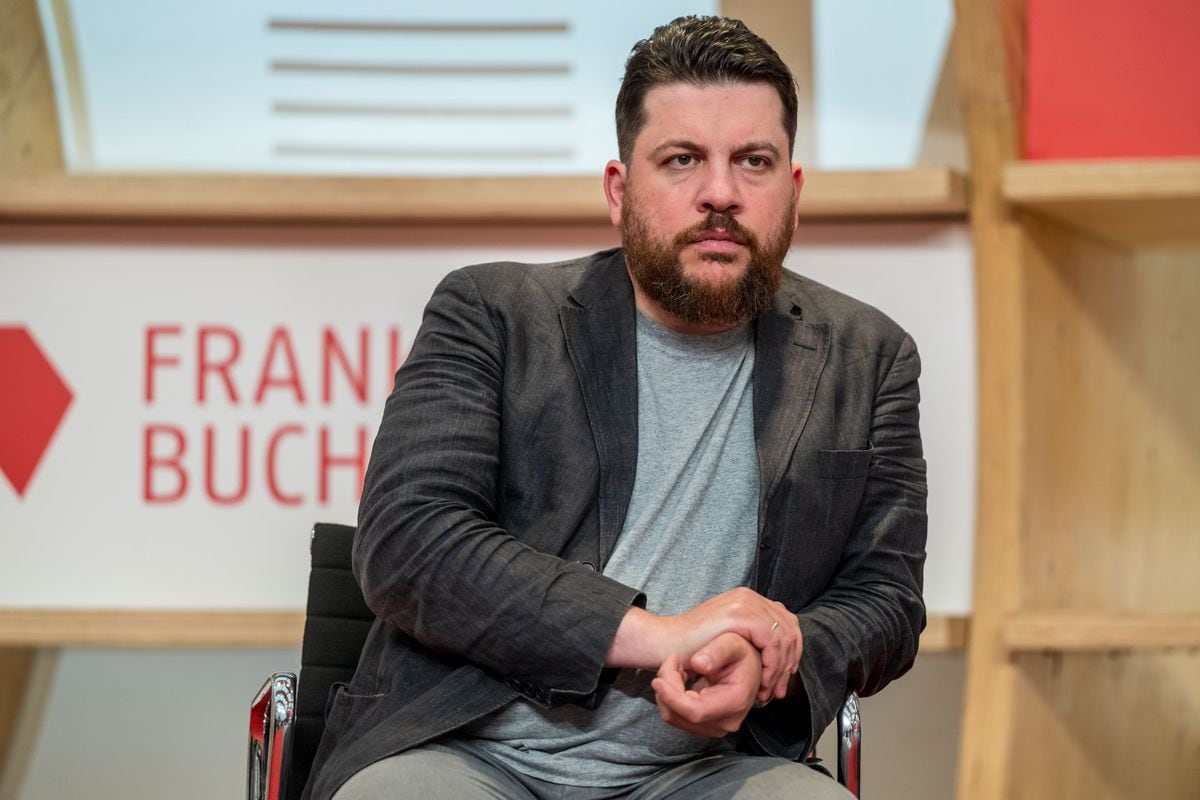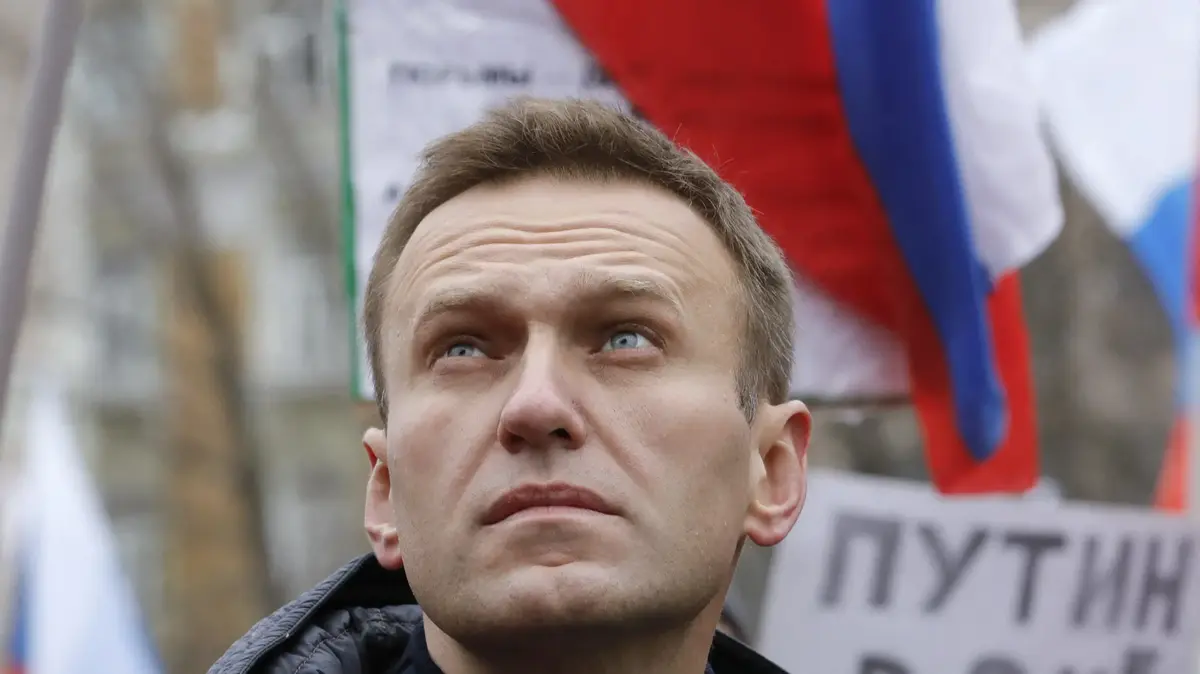Icon: enlarge
Photo:
Peter Rigaud / DER SPIEGEL
It is six o'clock in the morning on Wednesday when Alexej Navalny appears for an interview at the Berlin editorial board of SPIEGEL.
The office is only a few steps away from the Charité, where Navalny was treated for a month and hovered between life and death.
The Kremlin opponent, who had been poisoned with the nerve agent Novichok, was released from the hospital just last week.
Four employees of the LKA secure his visit.
Navalny, who in the meantime could no longer walk, took the stairs on the way up, not the elevator.
Alexei Navalny, 44, is Russia's most prominent opposition figure.
But since the attack on his life on August 20 in the Siberian city of Tomsk, he has been on the world stage.
Angela Merkel campaigned for his departure to Germany.
Because he was poisoned with a substance that can practically only come from Russian state laboratories, the question of the personal responsibility of Russian President Vladimir Putin is being raised around the world.
It is not the first time that a Russian opposition activist should be killed - but the first time that circumstances are so pointing to the Kremlin.
He denies any involvement.
The conversation with SPIEGEL is Nawalny's first interview since the attack.
He seems concentrated at the meeting, remembers a lot - and yet you can see the consequences of his poisoning.
Scars on the neck show where it was ventilated.
When he pours water from a bottle into his glass, it clearly takes a lot of effort, he has to use both hands.
He refuses to help.
"My physiotherapist says I should make an effort to do everything myself," he says.
Navalny seems more nervous than at previous meetings, his face narrower, his figure more wiry.
He has lost twelve kilograms.
But his voice is the same, as is his humor, his irony.
Next to him is Kira Jarmysch, Navalny's press officer.
She was sitting next to him on the plane on August 20 when the symptoms of his poisoning set in.
Before the conversation begins, Navalny would like to start off with something.
Icon: enlarge
His team secures water bottles in Navalny's hotel room in Tomsk.
One shows traces of the poison.
Photo: AFP
Navalny:
It is important to me that this interview appears in the German press.
I have never had close ties to Germany.
I don't know anyone here.
I didn't know a single politician.
And now it has so happened - you see, my voice is shaking, I have become so maudlin - that German politicians and Angela Merkel of all people took part in my fate and saved my life.
The doctors at Charité saved my life a second time and, more importantly, they gave me back my personality.
Therefore I want to say first of all: I feel a huge gratitude towards all Germans.
I know that sounds a bit pathetic now, but Germany has become a special country for me.
I hardly had a connection here, I was only three years ago for the first time in Berlin!
And then so much human concern, from so many people.
SPIEGEL:
That will please our readers.
How are you today, Mr Navalny?
Navalny:
Much better than three weeks ago, and it's getting better every day.
Recently I could only climb ten flights of stairs, now I can make it up to the fifth floor.
The most important thing for me is that my mental abilities have returned.
Well, maybe we will discover the opposite in the course of the interview (laughs).
SPIEGEL:
You wrote on Instagram that you can no longer stand on one leg.
Navalny:
I can do that again.
My latest job is to stand on one leg and stretch the other leg forward, which is what I train every day.
These are actually exercises that some ninety year olds do in the park.
SPIEGEL:
Can you sleep well?
Navalny:
That's my biggest problem.
I used to laugh at people with sleep problems because I never had them myself.
But then came the coma, the anesthesia, the weaning from the narcotics, that long state of limbo when I was neither sleeping nor awake.
Since then I have not been able to fall asleep without sleeping pills.
Icon: enlarge
Navalny is transported from Omsk to Berlin on a chartered rescue flight.
Photo: Kira Yarmysh / dpa
SPIEGEL:
When you lost consciousness, you were a member of the Russian opposition.
When you woke up from a coma, you were a figure in world politics.
Chancellor Merkel visited you at the bedside.
What did you talk about?
Read more with Spiegel Plus
More perspectives, more understanding.
Your advantages with SPIEGEL +
Icon: Check
DER SPIEGEL as a magazine
as an app, e-paper and on the e-reader
Icon: Check
All articles on SPIEGEL.de
Exclusive texts for SPIEGEL + readers
Icon: Check
Try one month for free
Cancel anytime online
A price
only € 19.99 per month
One month for € 0.00
Try now for 0.00 € Buy nowArrow to the right
Already have a digital subscription? Register here
Restore iTunes subscription
SPIEGEL + is processed via your iTunes account and paid for with a purchase confirmation. 24 hours before it expires, the subscription is automatically renewed by one month at the current price of € 19.99. You can cancel the subscription at any time in the settings of your iTunes account. In order to use SPIEGEL + outside of this app, you have to link the subscription to a SPIEGEL ID account immediately after purchase. With the purchase you accept our general terms and conditions and privacy policy.




/cloudfront-eu-central-1.images.arcpublishing.com/prisa/ZNFV524GTFBPBK4ZW4RGHMFR7M.jpg)








